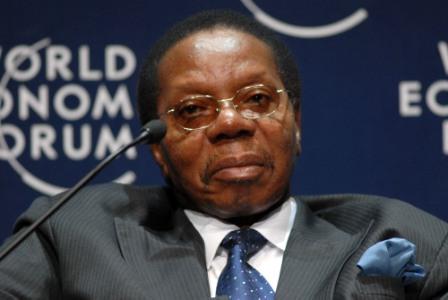No featured image set for this post.
President Bingu Wa Mutharika rumoured dead
Published on April 5, 2012 at 10:36 AM by FACE OF MALAWI

President Bingu Wa Mutharika is being rumored to have passed away after suffering a heart problem. Malawi President Bingu wa Mutharika has died after doctors at Kamuzu Central Hospital failed to resuscitate him when he suffered a cardiac arrest earlier in the day. The 78-year-old President was taken to the hospital in the capital Thursday morning after he reportedly collapsed. “The President has died,” said a top government official who declined to be named. First Lady Callista and three of Mutharika’s four children were at the hospital with the President. Others were his brother Peter and State House Chief of Staff Edward Sawerengera.
Health Minister Jean Kalirani and IG Peter Mukhito were also there. The news will inevitably lead to speculation about Malawi’s political future but the Constitution says Vice President takes over until the next elections.Malawi’s president Bingu wa Mutharika was this morning hospitalised in the intensive care unit at Kamuzu Central Hospital in the capital Lilongwe.
Doctors and nurses who asked for anonymity have said that the President in shock when he was taken to the intensive care unit.
“We have called for medication from some private hospital to treat the shock before he can be airlifted,” said one of the medical staff.
The officials, who spoke on condition of anonymity because they were not authorized to speak to journalists, said 78-year-old President Bingu wa Mutharika was taken to a Lilongwe hospital Thursday morning. Further details on his condition were not immediately available.
Mutharika is a former World Bank official once heralded for his stewardship of a southern African country that is among the world’s poorest. In recent years, he has been accused of trampling on democratic rights.
Mutharika first came to power in a 2004 election, and was overwhelmingly re-elected five years later. Elections are not due again in Malawi until 2014.
During his first term, Mutharika persisted with a program to help farmers buy fertilizer even though Western donor nations and agencies said subsidies should be avoided in a free market. His subsidies were credited with boosting Malawi’s economy.
In more recent years, the economy has stumbled, with shortages of fuel and foreign currency and high unemployment.
Anti-government demonstrations across Malawi last year were met with an unprecedented security crackdown that resulted in at least 19 deaths.
Malawi’s relations with foreign donors have been strained by accusations Mutharika is authoritarian and responsible for human rights abuses. Last month, a U.S. aid agency that rewards good governance suspended $350 million worth of assistance to Malawi.
Mutharika also has clashed with politicians at home, including his own vice president, Joyce Banda. She was expelled from Mutharika’s party and formed her own but remains vice president and under the constitution would become president if there was a sudden vacancy at the top.


